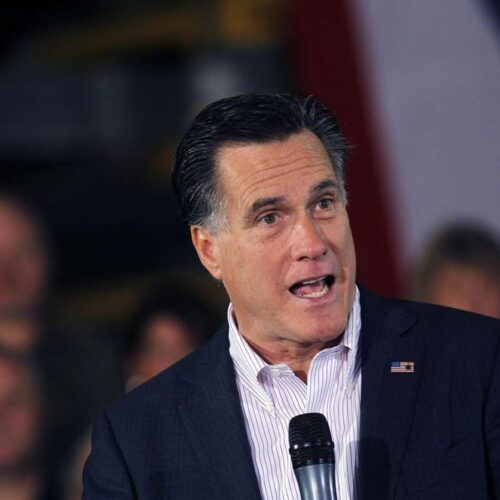Introduction
Political committees controlled by Mitt Romney’s campaign have made generous donations to prominent Republicans in early primary states, but records show contributions have tailed off as the GOP nominees head in to Super Tuesday.
The former Massachusetts governor has used a network of state and federal political action committees and personal donations to hand out at least $1.78 million to hundreds of local and national Republican candidates and organizations in all 50 states and the District of Columbia since his unsuccessful 2008 bid for the White House.
More than $500,000 was spent on Republican candidates in the first 13 state contests, which accounted for 371 delegates. Republicans in the 10 Super Tuesday states, where 437 delegates are up for grabs, received less than $328,000 from the Romney team.
The dwindling donations suggest the campaign, like the political prognosticators, did not expect the nomination battle to continue as long as it has.
In South Carolina, which hosted the third GOP contest, the Romney-affiliated committees gave more than $100,000 in contributions to state politicians, including more than $62,000 to Gov. Nikki Haley, who endorsed the front-runner. In New Hampshire, which hosted the second primary, $105,000 went to local politicians, the most of any state.
But in Ohio, an important bellwether with 66 delegates at stake, the Romney committees have donated a paltry $37,500. The spending has helped garner the endorsements of Ohio Republican U.S. Sen. Rob Portman and three of Ohio’s 18 representatives in the House, but Romney has been unable to win the support of Republican Gov. John Kasich, who got at least $6,000 from Romney and his leadership PACs.
Former Pennsylvania Sen. Rick Santorum is currently polling neck and neck with Romney in the critical battleground state.
Funds came from Romney’s federal Free and Strong America PAC, which amounted to a little more than $1.5 million, as of the most recent filings. Another $300,000 has been donated to state candidates via 11 state PACs registered under some variation of the name “Free and Strong” or “Commonwealth.” The numbers are current through the end of January.
Six states show one or both of those names as registrants: Alabama, South Carolina, Michigan, Arizona, Iowa, and New Hampshire. The Center analyzed state and federal campaign finance records and data compiled by the National Institute on Money in State Politics.
These so-called leadership PACs are used by politicians donate money to other influential or like-minded candidates. By making strategically timed donations to candidates in need of cash, a politician can gain clout within the party and build allegiances that may come in handy during a tough electoral battle.
“These contributions may help secure endorsements or support from powerful [Republicans] that can be crucial in winning a state’s primary or caucus,” explained Kevin McNellis, a researcher at the Institute.
The donations are “not only remarkable in the amount that he’s given,” McNellis added, but also for the “sheer number” of candidates that have benefited and how far back the contributions go. Some of the state PACs were created as early as 2004.
Years of careful contributions to Republicans in need have helped Romney rack up more major political endorsements than his GOP rivals this election season. Romney got a boost on Sunday when prominent Republicans House Majority Leader Rep. Eric Cantor of Virginia and Sen. Tom Coburn of Oklahoma endorsed the candidate.
Three of the eight Super Tuesday states with Republican governors have lined also up behind Romney, who once led the Republican Governors Association. But endorsements don’t always lead to victory.
In South Carolina, conservative voters backed former House Speaker Newt Gingrich by a thumping 12-point margin over Romney.
Among the Super Tuesday contests, Romney’s home state of Massachusetts, which has 41 delegates, received the most from pro-Romney PACs. Republicans officials have received at least $80,000, many of whom failed to win election to higher office.
Another Super Tuesday state where the Romney team has focused many of its donations is Gingrich’s home state of Georgia. It has the most 76 delegates up for grabs, the most of any state at play tomorrow.
Romney and his PACs have given more than $65,000 to nearly 100 Georgia politicians and Republican groups. That largesse didn’t dissuade Gov. Nathan Deal and five of the state’s 11 GOP representatives from endorsing the former House speaker.
The four former GOP presidential candidates who have received donations from Romney’s team have also been largely un-swayed. Only former Minnesota Gov. Tim Pawlenty, who got a total of $5,000 from Mitt and Ann Romney after he dropped out, has endorsed him.
Minnesota Rep. Michele Bachmann got $2,500 from Romney’s federal leadership PAC during her 2010 reelection campaign. And as the Center previously reported, Romney donated $10,000 to Santorum in the run up to the Massachusetts governor’s last presidential run.
The beneficiary-turned-opponent of Romney, Texas Gov. Rick Perry, got $10,000 from Romney’s federal PAC in May 2010 when he was in the midst of a hard-fought re-election battle.
Despite the record of support from Romney, Perry chose to endorse Gingrich when he dropped out of the race on the eve of the South Carolina primary.
Romney’s federal PAC even gave $7,500 to Kentucky Sen. Rand Paul, son of former and current GOP presidential hopeful Ron Paul.
Michael Beckel contributed to this report.
Read more in Money and Democracy
Money and Democracy
Super Tuesday brings super PAC spending milestone
Money and Democracy
Conservative radio host and filmmaker produced viral Volt video
Parody has drawn more than 367,000 visitors


Join the conversation
Show Comments